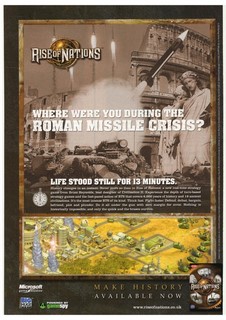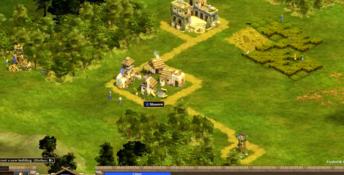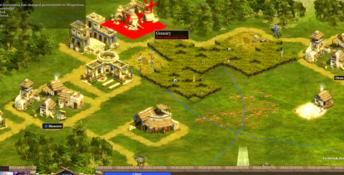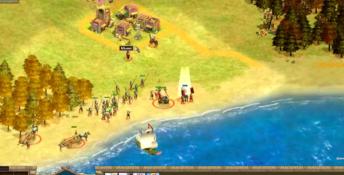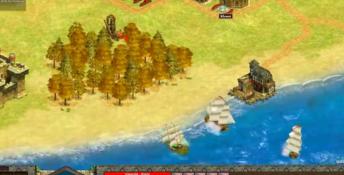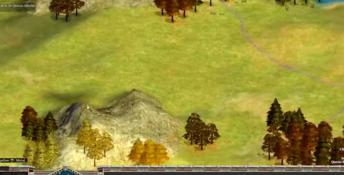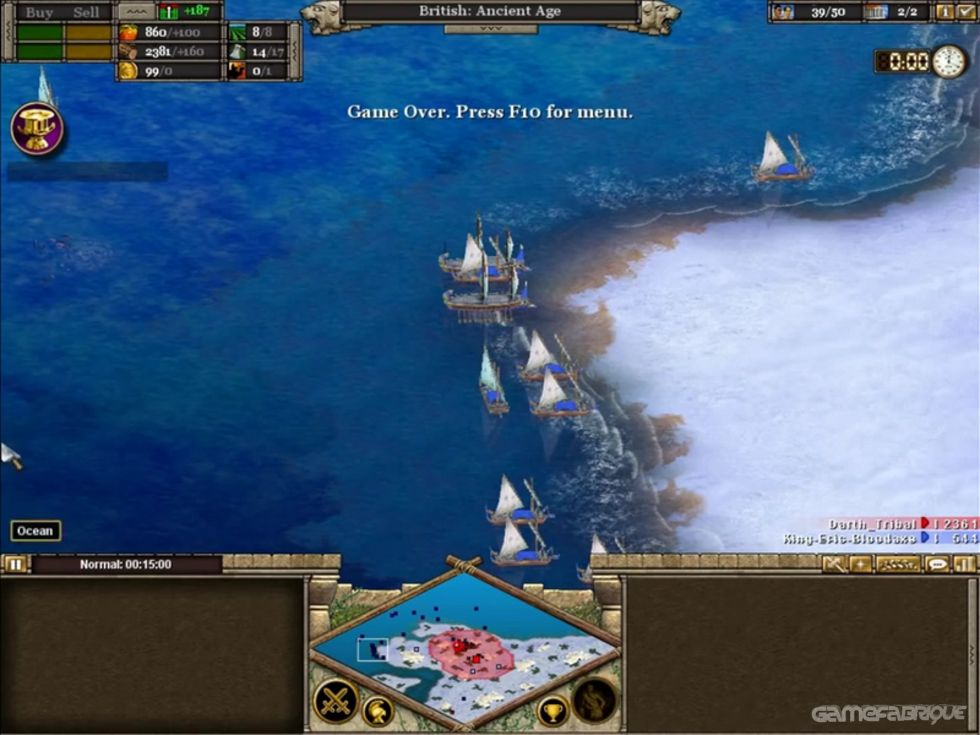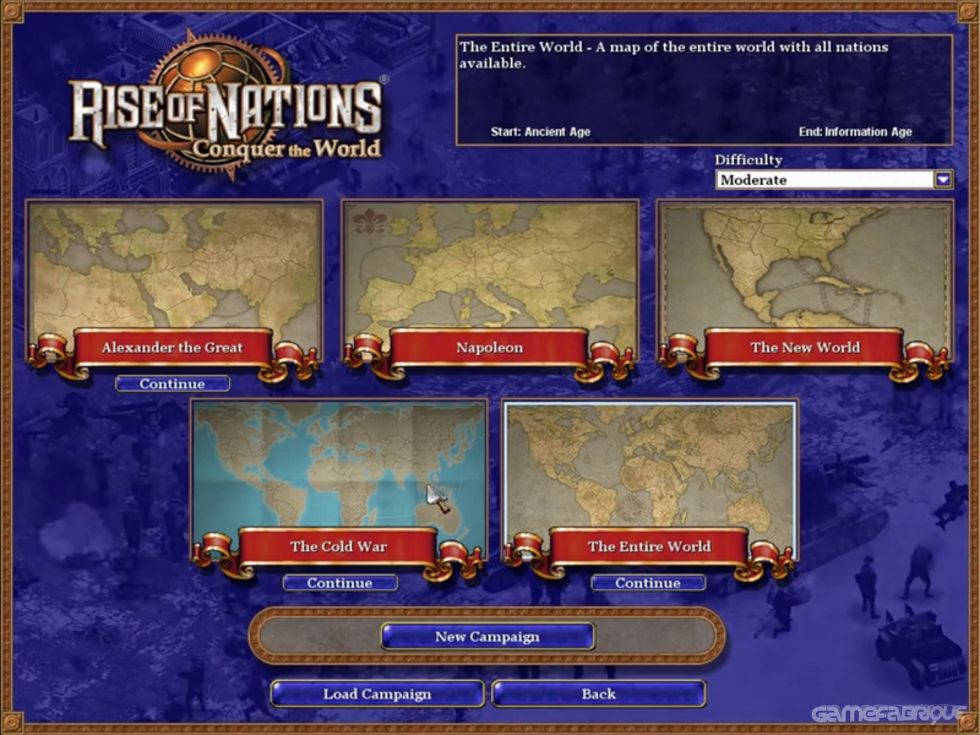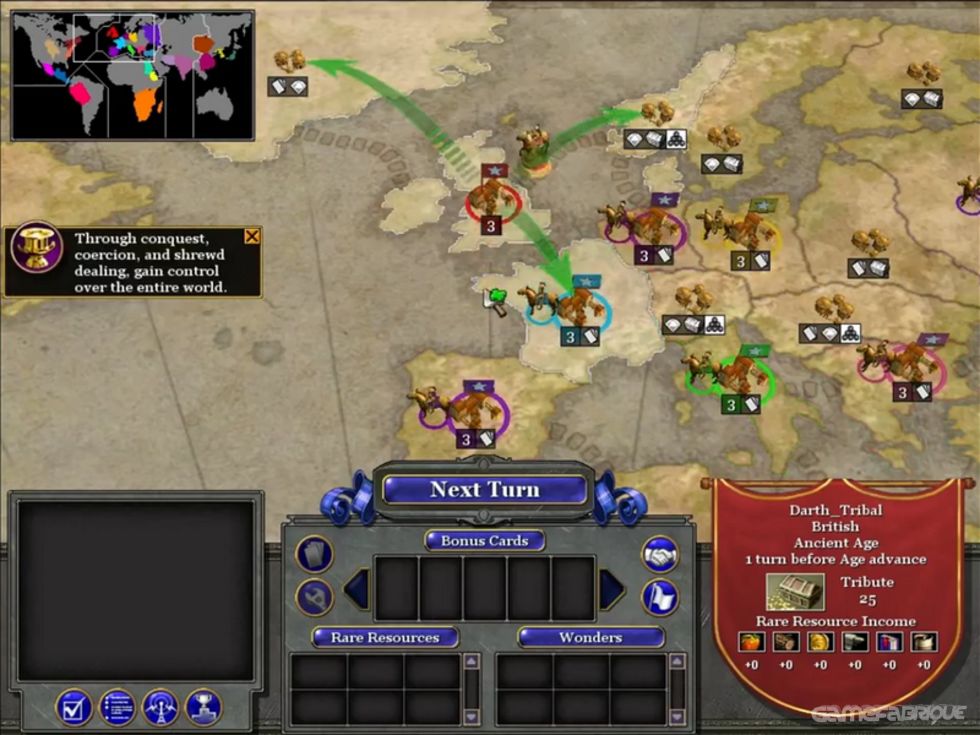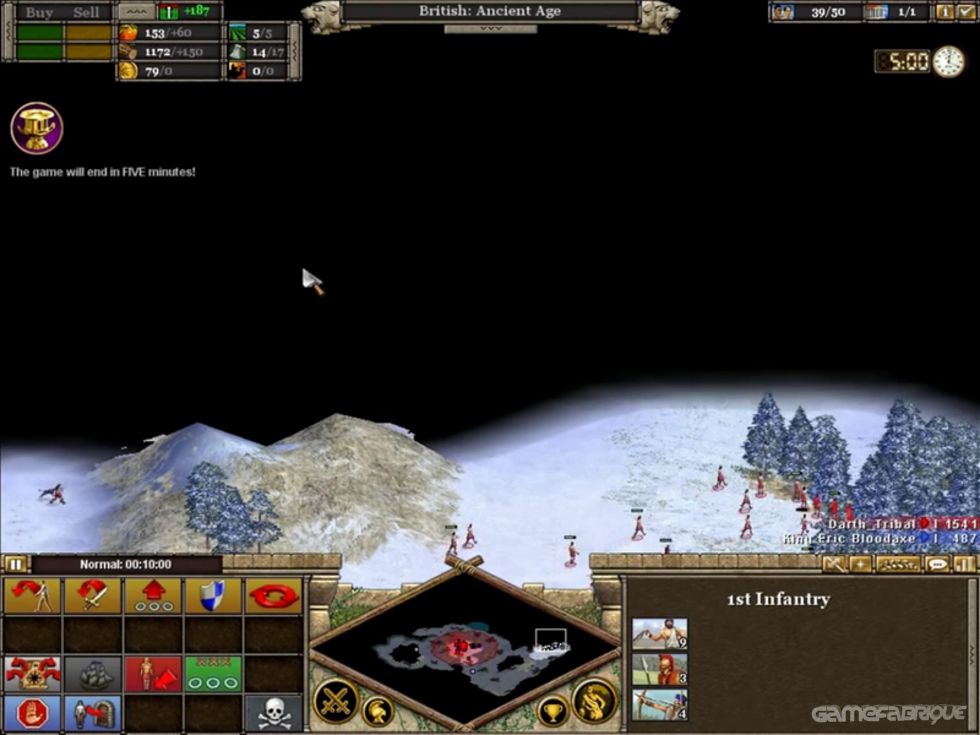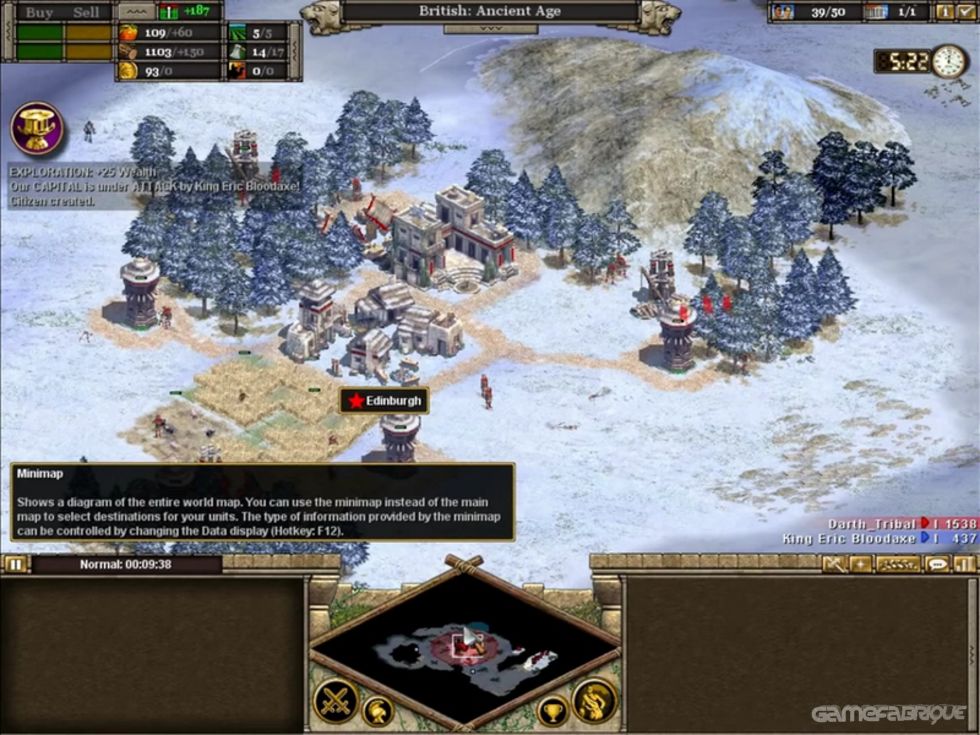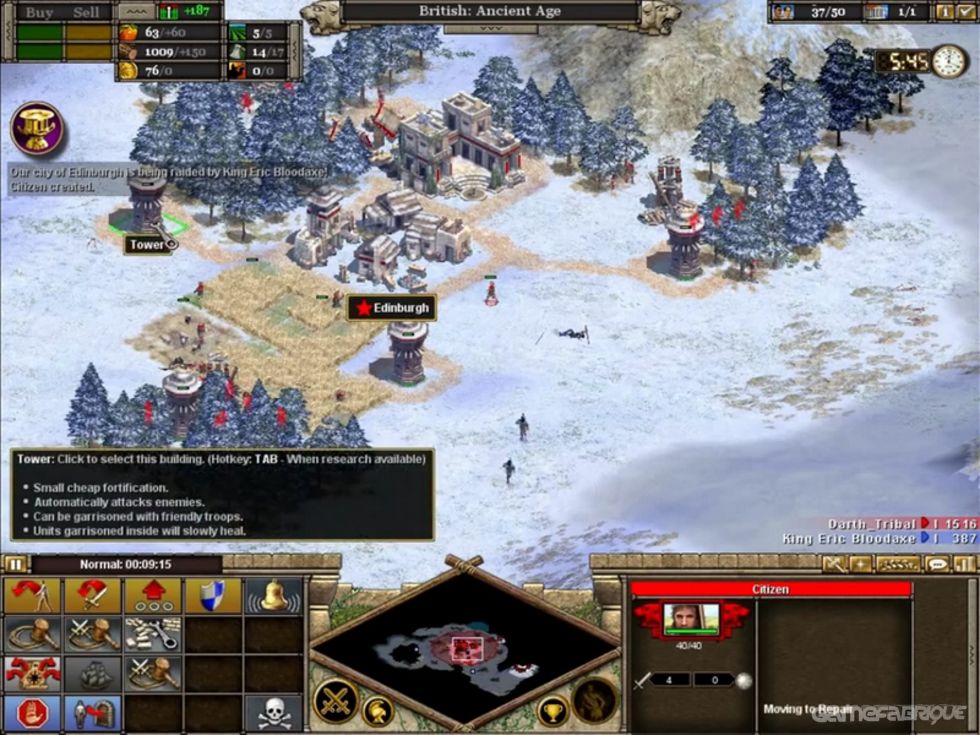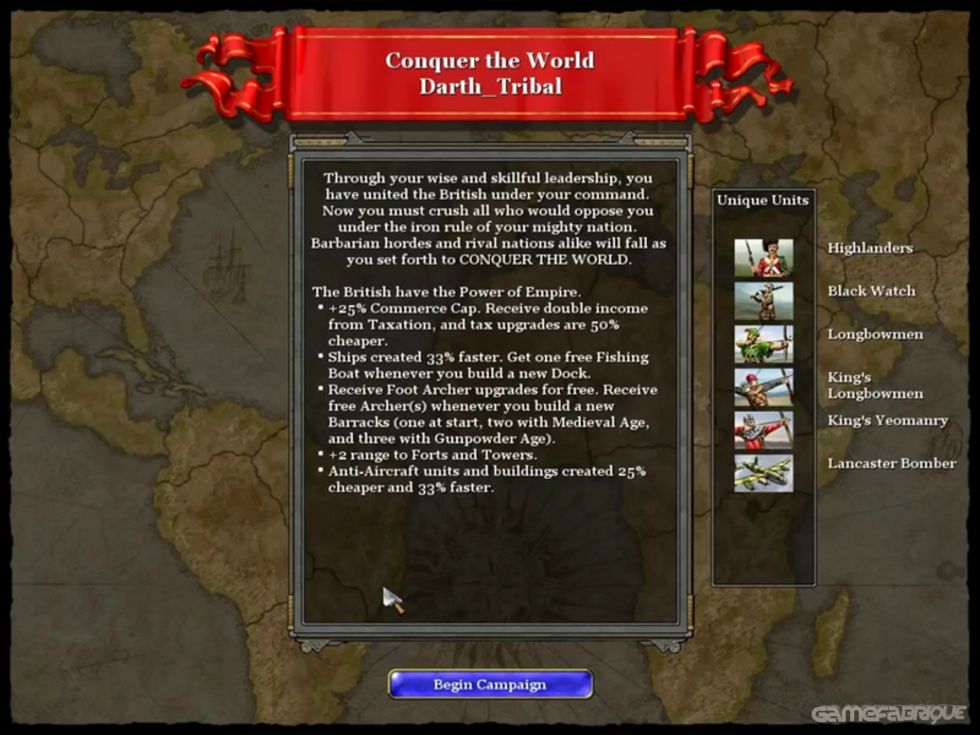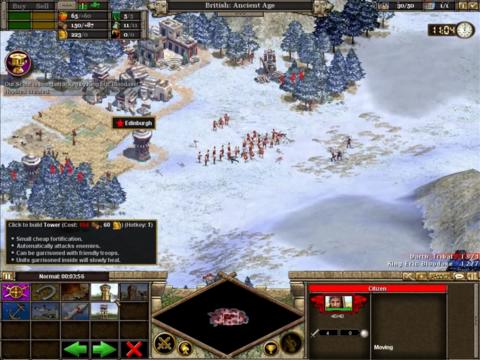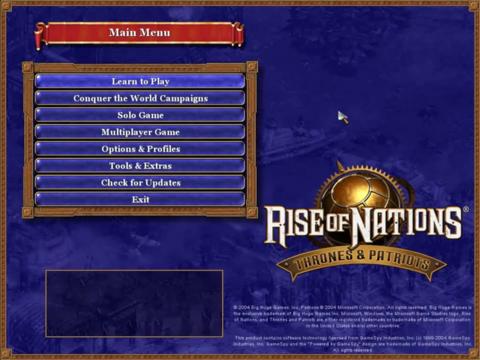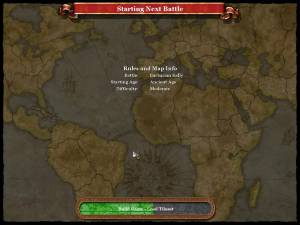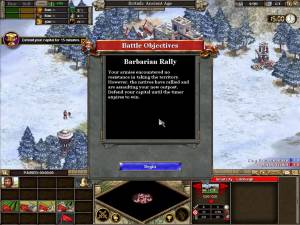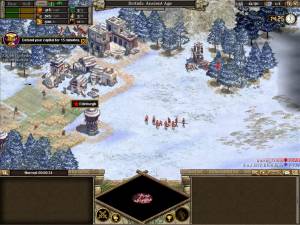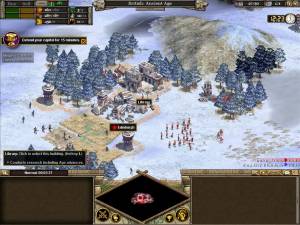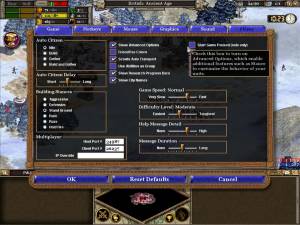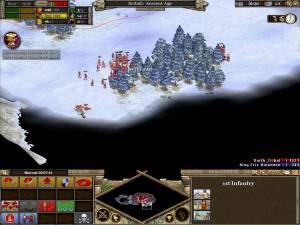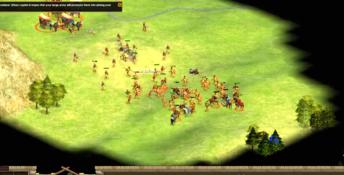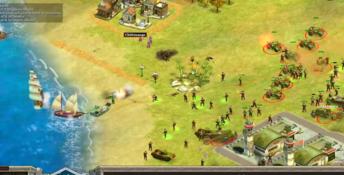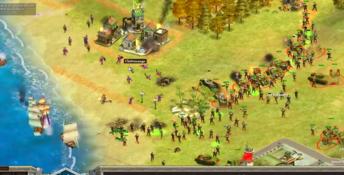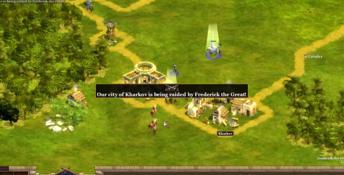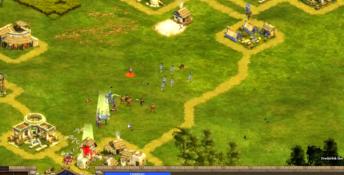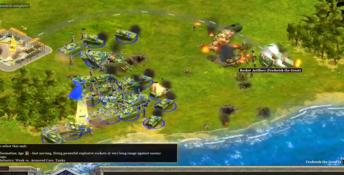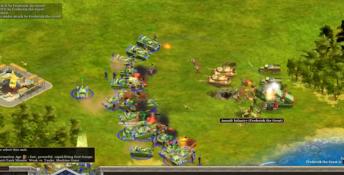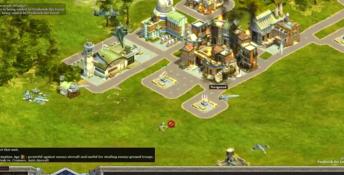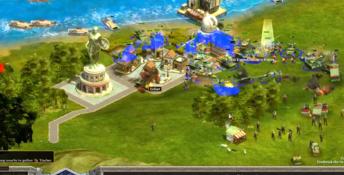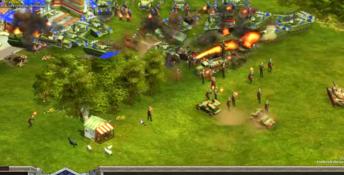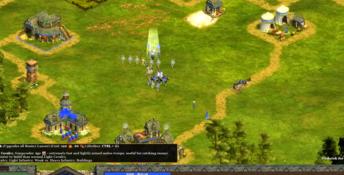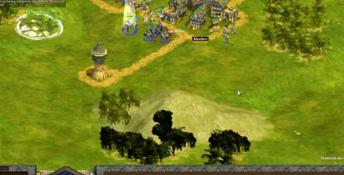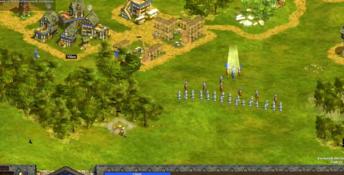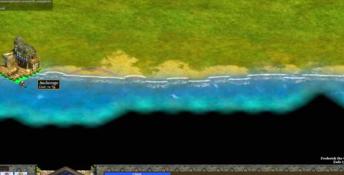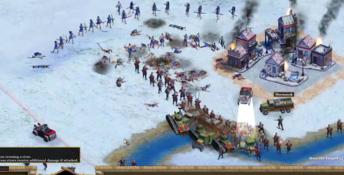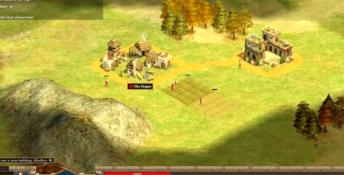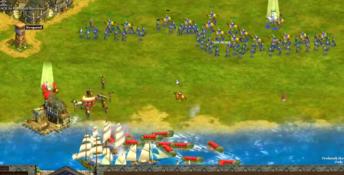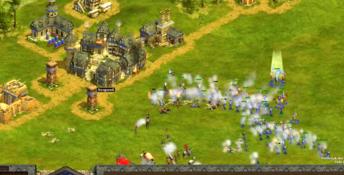Rise of Nations
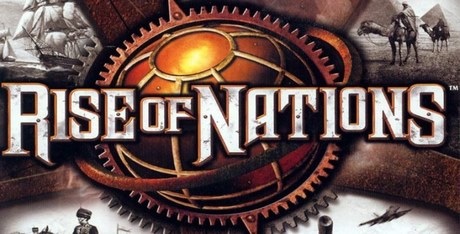
| a game by | Microsoft |
| Genre: | Strategy/War |
| Platform: | PC |
| Editor Rating: | 8.3/10, based on 3 reviews, 4 reviews are shown |
| User Rating: | 7.8/10 - 37 votes |
| Rate this game: | |
| See also: | Best RTS Games, Games Like Red Alert, Games Like Company of Heroes, Games Like Supreme Commander, Rise of Nations Series |
When was the last time you played an RTS and thought, "Yes, this is different, this is new"? At a guess, it's probably been a while. OK, Command & Conquer: Generals is good, but it's still nothing spectacular - the same old chassis with a few external modifications. 3D engines may look good, but they're also guilty of putting gameplay ideas on hold. In some cases they even hinder it - just look at Highland Warriors.
The last truly evolutionary RTS has to be Total War. Aside from the ridiculously large 3D armies (even if controlling 8,000 pixels on the horizon is still not everybody's cup of tea), it boasts an inner tactical depth that goes beyond mere 'rush' tactics and allows the player to consider the global situation away from the battlefield. It is without question the most accomplished and thoughtful RTS on the market. Until now.
Civilisations In Disguise
What we have in Rise Of Nations is innovation, imagination and the creative impetus of designers who have basically said, "Right, we're turning Civilization into a RTS game." If you read last month's preview, you'll be familiar with this quirky idea by now. Still, we'd better apologise, because this is something we will come back to time and time again over the course of the next six pages. The inescapable fact is RoN really is a real-time version of Civilization III - this is an RTS that plays by turn-based rules.
But Civ is not RoN's only source of inspiration. Visually, it's the absolute spitting image of Age Of Empires. The first time you emerge onto the main isometric play area, you will be convinced that the pale-faced apprentice who works down at your local game shop has swapped CDs and given you Ensemble's erstwhile RTS classic by mistake.
Sadly, these days AoE is hardly a glittering showcase of cutting-edge visuals. Consequently, RoN's graphics do the job and nothing more. Frills such as birds circling the battlefield as well as decent unit animation breathe a little life into the static landscapes. And you have to admire the way each culture in the game has a different graphical style, and in many cases completely unique units too. But overall, there's none of the beauty of C&C: Generals' lush 3D world.
Yet it matters not. Big Huge Games has taken the sensible if not fashionable view that gameplay comes before looks. Besides, show us a strategy game that's become a classic purely because it's pleasing on the eye. Great gameplay comes first. Graphics are. and always will remain, secondary in this genre.
Borderline
One of the main reasons RoN has gamplay in abundance is down to its concept of national borders. This real-time, shifting coloured line across the battlefield indicates the limit of your territory. Yet, it also represents so much more. By watching your border edge forward or slip backward, you can gauge exactly how powerful your nation is compared with your neighbour.
One of the most obvious ways to increase the size of your territory is to found new cities. In fact, success in RoN lies in your ability to spread out as quickly as possible from your capital city in a manner similar to a turn-based game we may have already mentioned. But like Civ. you can't just wander about setting up cities here, there and everywhere.
Firstly, there's location to consider. Is it near a good source of metal and wood? Is the land fertile enough to farm? Is it easily defendable? You also need to have enough food and wood available to actually start building. But most important of all, you need to make sure you have researched civic technology at your library. Each level you advance up the civic tech tree allows you to build one more settlement. There are seven levels in total, so while you can only build seven cities per map (which is more than enough - believe us) there is of course the added option of capturing enemy cities to increase your numbers, and ultimately your overall national strength.
Technology is crucial in RoN. As well as civic technology, you need to research military, commerce and science. As a general rule the nation that wins a battle tends to be the nation that's completed its research tree first. The knock-on effect of this is that you can often become bogged down in managing your economy in order to gather enough resources to research your tech, when all you really want to do is raise an army and, well, raze.
Thankfully, the single-player skirmish mode provides a variety of options aimed at minimising this problem. There's even a turbo resource-gathering mode that means you can literally forget about your economy and concentrate on destroying the planet instead.
It may also be worth noting that due to the immense amount of upgrades available, it's very easy to forget where to find the upgrade you want. This problem is compounded by the fact that sometimes an upgrade seems to be completely misplaced. Why, for example, is the upgrade to increase your ships' speed found in a granary? Call us picky, but maybe that kind of technology is more suited to the docks building.
The Wonder Of Technology
Other ways to push your borders forward include constructing things like universities (which also increase the knowledge of your nation), temples, farms, fortresses and markets.
Markets are particularly useful as they allow you to build caravans that link your cities and increase your income through trade. They also produce merchants who ride out on their faithful mules to set up shop next to various luxury resources dotted around the map, such as lemon trees, gems, horses, rubber, uranium and oil. These luxury resources differ from the five basic resources of wood, metal, food, money and knowledge, mainly because they only become visible when you have reached a certain technology level. Oil, for example, can only be collected once your nation has reached the Modern Age. Your nation will have no real use for it before then anyway. With no tanks to run, ships to sail or planes to fly, what use would you have for it anyway? Another perfect example of how RoN manages to take an idea from the turnbased Civ III and convert it seamlessly into an RTS.
Adding other essential constructions like barracks stables and war factories to increase your military presence is yet another way of expanding your borders. And Wonders too play a significant role in defining the relative strength of your nation. Knock out a quick Palais de Versailles or Taj Mahal and watch as friends and foes alike recoil in awe.
Borders effectively add a whole new dimension to RTSs that simply hasn't been considered before. But some will no doubt argue it's merely a gimmick tn make the map look more interesting. In fairness, if you analyse actual battle mechanics there isn't a huge difference between RoN and its peers. The same tried and tested RTS theories apply - elevation is critical; don't use archers against heavy infantry; establish defence before offence - it's all the usual stuff. And yet if you take away the borders, there's no doubt the game would change significantly. Attrition damage and major game options associated with this attribute would disappear, and many of the technology upgrades would be useless too.
There's no doubt the advantages of seeing your borders drawn on the map are easy to appreciate. With them, you can instantly see how your actions are affecting the overall strength of your nation. If a border is gradually falling backwards, you know you've got a serious problem that needs to be dealt with. If a border is constant or moving forward you know you're onto a winne.
Night At The Theatre
RoN sets itself apart from other RTSs for another reason - the campaign mode. Bucking the current trend for story-telling, RoN goes down the same route as Total War by having an overview strategic map (the entire world in this case) which is divided up into territories.
Placed into this international theatre of war are 18 nations including Britain, France, Spain, Germany, China, Egypt and Russia, to name but a few. You can choose to battle it out for complete global supremacy as any one of these at the start of the campaign.
Each territory on the map contains prizes such as resources, cash tributes, wonders and supply depots offering extra armies. And the Al-controlled nations are more than aware of the strategic advantages of these features. Some home in on resources, others rush to simply gain as much territory as possible, while others head straight for the supply depots.
Al for all 18 nations is wonderfully varied and well balanced. You can expect the same kind of tactical variation when you get down onto the actual battlefield too. Germans in particular are extremely defensive and take a lot of breaking down. Aztecs meanwhile are overtly aggressive yet leave gaping holes in their lines that can be gleefully exploited by the resourceful aggressor. The only part of the Al that is even slightly dubious is the occasional tendency for units to struggle finding a way across water. Pathfinding eh? As always we're at its schizophrenic mercy.
Decisions are not just governed by what territory to take though. Buying, or indeed capturing, bonus cards is something that proves just as important. These handy little trump cards can be played before a battle and can benefit you in several ways. Some cards allow you to collect battlefield resources faster (like food, wood and metal). Others completely disable an opposing nation's special power for the duration of a battle. If you were fighting the Spanish, for example, you could play a card to eliminate their ability to see the entire map from the start. And propaganda cards are especially welcome, seeing as it's something we've all become so accustomed to recently.
In total there are 20 cards available, and it's pretty amazing how often you find yourself relying on them, and not just your traditional RTS, skills to gain the upper hand.
Can't Buy Me Love?
Managing your campaign is reminiscent of those maps of Iraq we keep seeing on television. Arrows indicate where reinforcements can move in from, and you can see at a glance exactly in which territories your armies are positioned. However, unlike the war in Iraq, RoN provides you with a chance to buy territories using an ancient art called 'diplomacy'. It's very effective, it averts bloodshed and we highly recommend it.
The amazing variety of strategies on offer makes RoN a truly unique gaming experience. You can actually find yourself pondering for what seems like hours over your next move. Invade France? Form a treaty with China (after all they keep those feisty Japanese at bay)? Push on into Africa and capture the Pyramids? The options are endless, and it adds up to a non-linear RTS experience you can play over and over again.
On Your Own
If the world domination campaign doesn't tickle your fancy then panic not. As mentioned earlier, you can participate in one-off battles against up to seven other nations. These skirmish battles have so many configurable settings you could play a hundred games and face a different challenge each time. 'No Rush', 'Diplomacy', 'Assassin', 'Barbarians at the Gates', 'Peaceful Tech Race' - the variations on the tried and tested RTS theme are immense.
You can even adjust the starting age. So if you want to fight in the Information Age with tanks, battleships and nukes as opposed to the swords, carracks and catapults of the Classical Age, you can. It's up to you whether you want to fight in 1BC, 2000AD, somewhere in between, or battle your way through all seven historical ages in a gruelling war spanning two entire millennia.
Further increasing the challenge are six difficulty settings. The easiest allows you to smother your foes like a wrestler pinning down a small kitten. Yet, at the other end of the scale you struggle to chop a tree down without your wily foes mysteriously appearing from nowhere to slaughter your hapless lumberjacks. Rounding off the one-off battle mode is a selection of around 16 maps. Granted, this is not a huge amount, but it's more than enough when combined with the other customisations on offer.
Again, like the campaign mode, RoN's ability to conjure up so many options and provide the player with so many ways to play the game is extraordinary. What's more, you'll be pleased to know that all the above options can be implemented in the multiplayer game.
Fresh Prince
So, Rise Of Nations is here, and with it comes a foil-wrapped freshness and unique perspective that we have never seen before; revolutionary national borders, a world domination campaign, 18 different playable cultures, 32 luxury resources and crucially, that all-important gameplay.
Graphically, there is certainly room for improvement, and doubtless a full 3D assault on the likes of Age of Mythology, Generals and Total War is the next step forward. Sticky moments in economy management and the occasional pathfinding mishap are further shortcomings, and ultimately it means RoN equals but doesn't better Total War. But these are minor flaws, and we're not taking anything away from what BHG has achieved with, and let's not forget this, its very first release.
If you're looking for an endlessly entertaining, bold new direction in strategy gaming then look no further than Rise Of Nations. Quite simply, it's one of the most satisfying and addictive RTS games ever crafted.
No Bedtime Story?
There will of course be those who rue the lack of a story-based campaign, but it's not all bad news on this front. RoN ships with a scenario and script editor, so if you really want a linear, plot-driven campaign you can bet that dozens of home-made challenges will be springing up on the Internet within a couple of weeks of the game's release. More to the point, the door has been left wide open for developer BHG itself to provide that kind of entertainment in a future expansion pack.
But for now, as far as we're concerned it actually makes a pleasant change to have an RTS that doesn't force some hastily contrived plot upon you. Which means for once we don't have to moan about it either.
Download Rise of Nations

System requirements:
- PC compatible
- Operating systems: Windows 10/Windows 8/Windows 7/2000/Vista/WinXP
Game Reviews
Rise of Nations, developed by Big Huge Games and published by Microsoft in 2003, is a real-time strategy game that innovatively fuses concepts from turn-based titles with traditional RTS gameplay. Led by veteran designer Brian Reynolds, Rise of Nations spans all of human history, allowing players to control one of 18 civilizations across 8 historic ages.
Introducing New Concepts to the RTS Genre
Several novel features help Rise of Nations stand out in the crowded RTS genre. Territory and borders play a pivotal role, with players only able to construct buildings within their territory or that of an ally. Technologies and resources also impose attrition on enemy units within a nation's borders over time. This creative touch brings in elements rarely seen in real-time strategy titles.
The wide scope of Rise of Nations also sets it apart. Players start in ancient times filled with clubs and slings, progressing all the way to modern weapons and spy planes by the end. Units upgrade seamlessly as new ages unlock, bringing a sense of advancement not found in more static RTS games like Age of Empires II. The core gameplay focuses on balancing offense, defense, and economy, requiring the same strategic resource management that the Civilization series does.
In many ways, Rise of Nations feels like a real-time adaptation of the Civilization formula under the steady hand of Reynolds. Fans of in-depth 4X gameplay will feel right at home.
Streamlined Gameplay Keeps the Action Moving
Despite the grand scale, Rise of Nations retains brisk, focused gameplay. The development team ensured individual matches only last an hour at most, preventing the drawn-out slog some empire-building titles fall into. Streamlined mechanics like combined infantry squads and terraced unit costs also contribute to the tightened experience.
The Conquer the World campaign mode deserves special praise for translating the board game Risk into thrilling real-time battles. Overall, Rise of Nations stands as one of the most ambitious yet accessible RTS releases in years. The fusion of 4X and RTS elements creates a uniquely enjoyable experience.
What truly sets Rise of Nations apart is the flawless execution on the developer’s vision. Many games with groundbreaking ideas flounder due to poor implementation. But Big Huge Games skillfully adapted Civilization’s deliberate empire-building pace for action-oriented RTS battles.
The result feels unlike any game before or since, striking the perfect balance between depth and accessibility. In many ways, Rise of Nations has more in common with 4X legends like Civilization than traditional RTS titles where base building trumps all else.
Review: 9/10
With innovative features and spectacular scope, Rise of Nations succeeds at blending 4X depth with RTS action for an unforgettable experience. The seamless gameplay and sense of advancement between eras create an engrossing, almost RPG-like attachment to your civilization. Meanwhile, territory and border mechanics lend a refreshing strategic dimension.
For innovating the RTS genre and implementing features previously exclusive to turn-based 4X games, Rise of Nations earns a well-deserved 9 out of 10. Nearly 20 years later, newer releases still struggle to capture the same scope, innovation, and flawless execution as this classic. Rise of Nations remains one of the most unique and defining RTS experiences ever created.
Pros:
- Innovative merging of turn-based and RTS elements
- Massive technological advancement between 8 historic ages
- Large variety of distinct civilizations and units
- Near-perfect execution for an ambitious vision
Cons:
- Aircraft and offensive units too overpowered
- Visuals feel dated nearly 20 years later
In The Face of Age Of Empires III, a new age of Civ and its own (unfortunately rather ignored at retail) progeny Rise Of Legends, should you still consider purchasing Rise Of Nations at a knock-down price?
A primary reason to say 'no' would perhaps be the visuals, which were ropey even back in the day (the day in question being one in 2003). Beyond this however, Rise Of Nations remains an eminently playable experience. In describing the game to a layman you might say it's Civilization but an RTS that looks a lot like Age Of Empires but also has a Total War-style strategic map - but you'd honestly be doing it an injustice. You can get lost for hours in its empire-building and Risk aura, meaning that even if the economics bits can get a little overbearing, it still comfortably holds its own these days. If someone came aknocking, I'd probably direct them to more recent efforts (AOEIII, if Im being honest) but you can't deny that behind the graphical mire, RON still has a spring in its step.
Rise of Nations (RoN) is Microsoft's Real Time Strategy historical war game and comparison to its Age of Empires franchise is inevitable. In addition to wrapping up all the historical eras in one product, RoN improves on those games in significant ways. It's also a streamlined response to rival Empire Earth.
Stretching from the beginnings of civilization to the Information Age, history here is divided into seven eras. And though there are fewer unit types overall, each nation has multiple uniques. The system for advancing eras is at once more sensible and elaborate. Acquisition of resources is less frustrating. Resources never deplete. Gold is now called Wealth. And a new Knowledge resource is a factor in advancing through both research and eras.
The game scale is different. The exclusion of walls is the most obvious evidence of this. You can build towers and redoubts for defense, but your territory cannot be connected up with masonry. It's nations now, see, and what you have instead are national borders -- which auto-adjust depending on what you've built. Other details folks might miss can be chalked up to this scale change, some not.
The visuals are tops, to be expected considering the publisher. Some of the unit behaviors at times may have you sitting back to watch -- in particular the flight operations of the air bases are visually logical and aerial dogfights verge on the spectacular.
Where this game really innovates is with the campaign game. This gives the most interesting and unique experiences yet in a RTS game, and one of the best long-form solitaire features in any genre. It's significant because it may redirect wayward game designers back to devoting some more effort to dynamic campaigns.
Here you have a Risk-type world map with major geographic zones. Your goal is to take these territories from the other civilizations through various means, including diplomacy. The game progresses through the ages, devoting one or more game turns to a series of dynamically generated battles set in the current era. The battle generator accounts for the terrain, allies, reinforcements and other factors. Some generated scenarios are elaborate 120-minute conquest missions while others may be short skirmishes or defenses to be finished in 15 minutes.
Between battles you can do some diplomacy, shift your armies around, etc. And before engaging in some you are prompted to play "cards" you've earned in your past victories. The cards can bestow special powers or resource boosts.
As for multiplayer, RoN plugs into the GameSpy opponent matching service with a well-designed client. Notable among hosting options is a set-up preference that can suppress "rush" strategies as well as options for pauses, and "cannon time" a chance for the player to put the game in super slow motion for a time. RoN on GameSpy is sure to be a high traffic area.
Creating scenarios unfortunately shakes out as one of the product's few shortcomings, for now. The scenario editor does not make some significant attributes available (nation name!). There is a trigger language -- a real scripting language, not a point-and-click macro interface -- whereby scripts can be written in a separate editor that's comparable to a professional IDE (Integrated Development Environment.) But more documentation is needed for this to be approachable by the average gamer. Developer promises more will be made available soon.
Rise of Nations is a worthy product with far more assets than shortcomings and a campaign game that will keep you playing.
Snapshots and Media
PC Screenshots
See Also
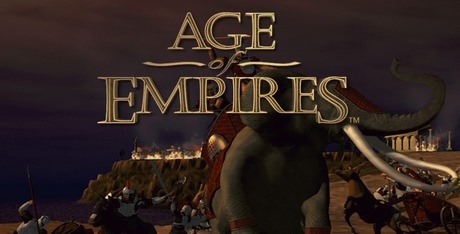 Age of Empires
Age of Empires
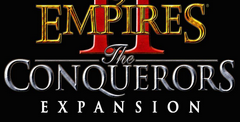 Age of Empires II Expansion: The Conquerors
Age of Empires II Expansion: The Conquerors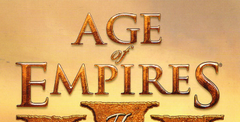 Age of Empires III
Age of Empires III
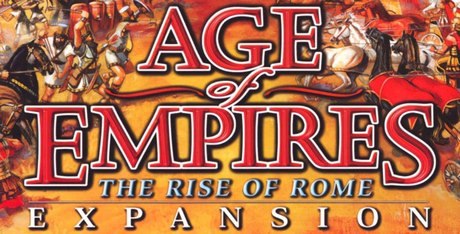 Age of Empires Expansion: The Rise of Rome
Age of Empires Expansion: The Rise of Rome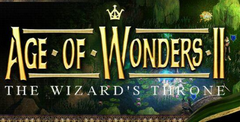 Age of Wonders 2: The Wizard's Throne
Age of Wonders 2: The Wizard's Throne
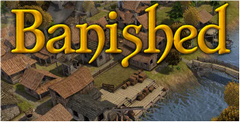 Banished
Banished
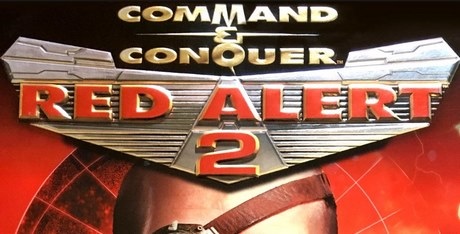 Command & Conquer: Red Alert 2
Command & Conquer: Red Alert 2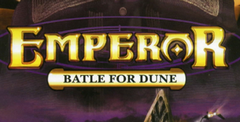 Emperor: Battle for Dune
Emperor: Battle for Dune
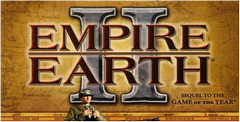 Empire Earth II
Empire Earth II
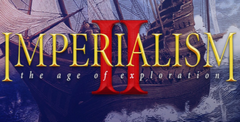 Imperialism II: The Age of Exploration
Imperialism II: The Age of Exploration
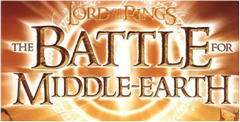 The Lord of the Rings: The Battle for Middle-earth
The Lord of the Rings: The Battle for Middle-earth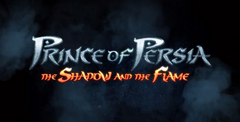 Prince of Persia 2: The Shadow & The Flame
Prince of Persia 2: The Shadow & The Flame
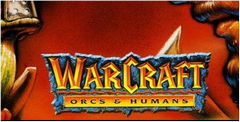 Warcraft: Orcs & Humans
Warcraft: Orcs & Humans
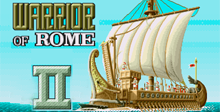 Warrior of Rome 2
Warrior of Rome 2
